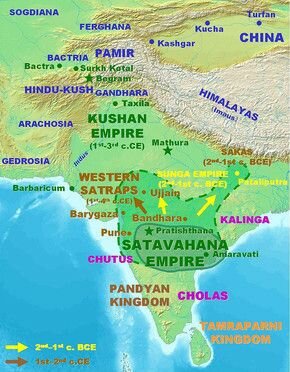NOBEL PRIZE WINNERS 1901-2019
HISTORY OF NOBEL PRIZES
On 27 November 1895, Alfred Nobel signed his last will and testament, giving the largest share of his fortune to a series of prizes in Physics, Chemistry, Physiology or Medicine, Literature and Peace – the Nobel Prizes. In 1968, Sveriges Riksbank (Sweden’s central bank) established The Sveriges Riksbank Prize in Economic Sciences in Memory of Alfred Nobel.
Learn more about the Nobel Laureates here.
597 Nobel Prizes
Between 1901 and 2019, the Nobel Prizes and the Prize in Economic Sciences were awarded 597 times.
Physics:
Number of prizes- 113
Number of laureates- 213
Awarded to one laureate- 47
Shared by two laureates-32
Shared by three laureates- 34
Chemistry:
Number of prizes-111
Number of laureates- 184
Awarded to one laureate- 63
Shared by two laureates- 23
Shared by three laureates- 25
Medicine:
Number of prizes-110
Number of laureates-219
Awarded to one laureate-39
Shared by two laureates-33
Shared by three laureates-38
Literature:
Number of prizes-112
Number of laureates-116
Awarded to one laureate-108
Shared by two laureates-4
Shared by three laureates- 0
Peace:
Number of prizes-100
Number of laureates-107+27
Awarded to one laureate-68
Shared by two laureates-30
Shared by three laureates-2
Economic Sciences:
Number of prizes-51
Number of laureates-84
Awarded to one laureate-25
Shared by two laureates-19
Shared by three laureates-7
TOTAL:
Number of prizes-597
Number of laureates-950
Awarded to one laureate-350
Shared by two laureates-141
Shared by three laureates-106
FIRST NOBEL PRIZE WINNERS – 1901
Physics – Wilhelm Rongten
Chemistry – Jacobus Henricus van ‘t Hoff
Physiology or Medicine – Emil Adolf von Behring
Literature – Sully Prudhomme
Peace -Henry Dunant; Frederic Passy
YOUNGEST NOBEL PRIZE WINNER
Malala Yousafzai – Peace 2014 , Born – 12 July 1997
NOBEL PRIZE 2019
- Peter Handke.- Literature
- Akira Yoshino.- Chemistry
- Jim Peebles- Physics
- Michel Mayor- Physics
- Didier Queloz- Physics
- M. Stanley Whittingham- Chemistry
- Michael Kremer Economic- Sciences
- John B. Goodenough- Chemistry
- Peter J. Ratcliffe- Physiology or Medicine
- Gregg L. Semenza- Physiology or Medicine
- William G. Kaelin- Physiology or Medicine
- Abhijit Banerjee- Economic Sciences
- Esther Duflo- Economic Sciences
- Abiy Ahmed- Peace Prize
Indian to win nobel prize till now
Rabindranath Tagore
Rabindranath Tagore was the first Indian to get a Nobel Prize in 1913, and in his area of expertise – Literature. He won the award for “his profoundly sensitive, fresh and beautiful verse, by which, with consummate skill, he has made his poetic thought, expressed in his own English words, a part of the literature of the West”.
Har Gobind Khorana
Har Gobind Khorana’s work on electron diffraction got him the 1968 Nobel Prize in Physiology or Medicine. He shared the award with Robert W Holley and Marshall W Nirenberg “for their interpretation of the genetic code and its function in protein synthesis
Mother Teresa
Mother Teresa was the first woman with close Indian ties to get the 1979 Nobel Peace Prize. While she was born in Macedonia (then Ottoman Empire’s Uskup) to parents of Albanian descent, she was sent to Calcutta to be a teacher after she entered a nunnery
Subrahmanyam Chandrasekhar
Subramanian Chandrasekhar made India proud in 1983 when he bagged the Nobel Prize in Physics “for theoretical studies of the physical processes of importance to the structure and evolution of the stars”. He shared the award with another physicist William Alfred Fowler
Amartya Sen
Economist Amartya Sen was the sole winner of the 1998 Sveriges Riksbank Prize in Economic Sciences, which was introduced by the Nobel Prize Committee in memory of Alfred Nobel, “for his contributions to welfare economics”
Sir Vidiadhar Suraj prasad Naipaul
Author VS Naipaul won the 2001 Nobel Prize in Literature “for having united perceptive narrative and incorruptible scrutiny in works that compel people to see the presence of suppressed histories”
Venkatraman Ramakrishnan
Tamil Nadu-born Venkatraman Ramakrishnan received the 2009 Nobel Prize in Chemistry “for studies of the structure and function of the ribosome”.He shared the award with Thomas A Steitz and Ada E Yonath
Kailash Satyarthi
Kailash Satyarthi, along with Malala Yousafzai, received the Nobel Peace Prize in 2014 “for their struggle against the
uppression of children and young people, and for the right of all children to education.”
Subscribe to our Newsletter!



